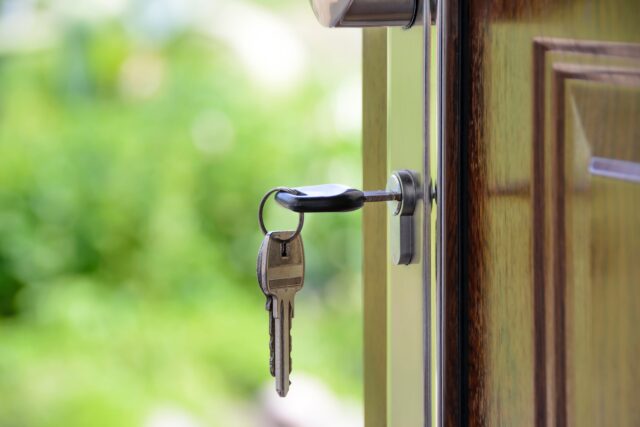
A thrilling and important milestone in anyone’s life is buying a property. The excitement of finding your ideal property should not, however, overshadow the necessity of undertaking rigorous inspections before making the purchase. These inspections are crucial in identifying any problems that might not be obvious to the untrained eye, giving you the information you need to make decisions and guaranteeing a simple and stress-free house-buying experience.
Prioritizing these inspections will help you protect your investment, negotiate with the seller skillfully, and build the groundwork for a secure and pleasant home ownership experience. To help you make a confident and educated decision when buying your new house, let’s review the essential inspections.
General Home Inspection
The very first examination that should be scheduled before closing on a property purchase is a general house inspection. It is a thorough assessment carried out by a certified house inspector. The inspector will evaluate the property’s general condition, taking into account its structural elements, roofing, foundation, plumbing, electrical systems, HVAC, and other features. This inspection’s objective is to find any potential safety risks, significant flaws, or maintenance problems that could affect the valuation of properties or jeopardize your safety as a homeowner. With this knowledge in hand, you may decide wisely and bargain with the vendor for repairs or price reductions.
Termite and Pest Inspection
A property can suffer severe damage from pests and termites that is sometimes difficult to see with the untrained eye. To find infestations, current damage, and potential threats, it is essential to schedule a pest and termite inspection.
A certified pest inspector will thoroughly check the property for termites, ants, rats, wood-boring bugs, and other pest activity. If any problems are found, you can take care of them before buying the house or work out a deal with the seller to get the right fixes.
Environmental Inspections
Environmental checks could be required depending on the location and part of the property. These examinations evaluate any environmental risks that might affect the house and the ones who live there. Environmental audits are frequently performed on:
- Testing for radon: Radon is an odorless, colorless, and naturally occurring gas that can penetrate dwellings and pose health hazards. Testing for radon will determine whether the gas is present and whether it is at a safe level.
- Mold examination: The growth of mold can lead to respiratory problems and structural damage. A mold inspection will find any issues with mold and assist you in resolving them before moving in.
- Lead-Based Paint Inspection: Houses constructed before 1978 may have lead-based paint, which is dangerous, especially for young children. If lead-based paint is present and whether it causes any risks, both are determined through an inspection.
Roof Inspection
An exhaustive roof inspection is a crucial step in the home-buying process. The entire building and its occupants are safeguarded by the roof, which acts as the first line of protection against the elements. A professional roof inspection will include more than just a visual check; it will include a thorough evaluation of the roof’s integrity, including the detection of any leaks, missing or broken shingles, wear and tear indications, and the general state of the roofing components. This examination enables you to make future maintenance or replacement plans by giving you crucial information about the roof’s probable lifespan.
Before closing the purchase, take care of any roof-related issues to prevent having to pay for unanticipated and expensive repairs later. By making a thorough roof inspection a priority, you can confidently continue your home-buying process, knowing that you are making an informed choice about the building’s long-term viability and worth.
Plumbing Inspection
A complete plumbing examination is necessary to make sure the building’s plumbing system is in good working order and free of any unforeseen problems. The water supply lines, drainage systems, water heaters, and fixtures will be evaluated by a licensed plumber.
Early detection of plumbing issues might spare you from later dealing with water damage and unforeseen repair expenditures. It also enables you to guarantee that the water pressure and quality satisfy your requirements and standards.

Electrical Inspection
A comprehensive electrical examination is an important step in the house-buying process that should never be skipped. Any home’s electrical system is its foundation because it powers all of the necessary gadgets, appliances, and lighting. A certified electrician will conduct a thorough electrical inspection to assess the wiring, circuit breakers, outlets, grounding, and general compliance with electrical codes to determine the system’s functionality and safety.
Early detection of electrical risks and flaws can avert significant safety problems like electrical fires or shocks and save you from unforeseen repair expenditures. Additionally, a checkup guarantees that the electrical system can sustain your daily power requirements without overflowing or generating disturbances.
Structure and Foundation Inspection
The foundation provides crucial support and prevents settling or structural failure by acting as the bedrock on which the entire structure is supported. An experienced expert will thoroughly evaluate the foundation throughout this process, looking for any indications of fractures, shifting, or other problems that can jeopardize the stability of the house.
Early detection of foundation issues is essential since they can result in expensive repairs and reduce the value of the property. A full structural inspection will also look at the home’s load-bearing walls, beams, columns, and other important structural elements in addition to the foundation. Knowing the property’s structural state will help you decide on any necessary repairs or improvements and, if necessary, bargain with the seller.
Although there are charges involved with inspections, keep in mind that they are a wise investment to safeguard your financial interests and guarantee the functionality and safety of your new house. When doing these checks, don’t be hesitant to hire skilled professionals because their experience can reveal potential problems that an uneducated eye might miss.
Last but not least, plan these inspections during the due diligence period closely with your real estate agent. Keep in mind that every property is different, and certain further inspections can be required depending on the location, age, and other features of the property. Setting aside the time and making the effort to schedule these necessary inspections will ultimately result in a secure and positive home-buying experience. Good luck finding a home!


































